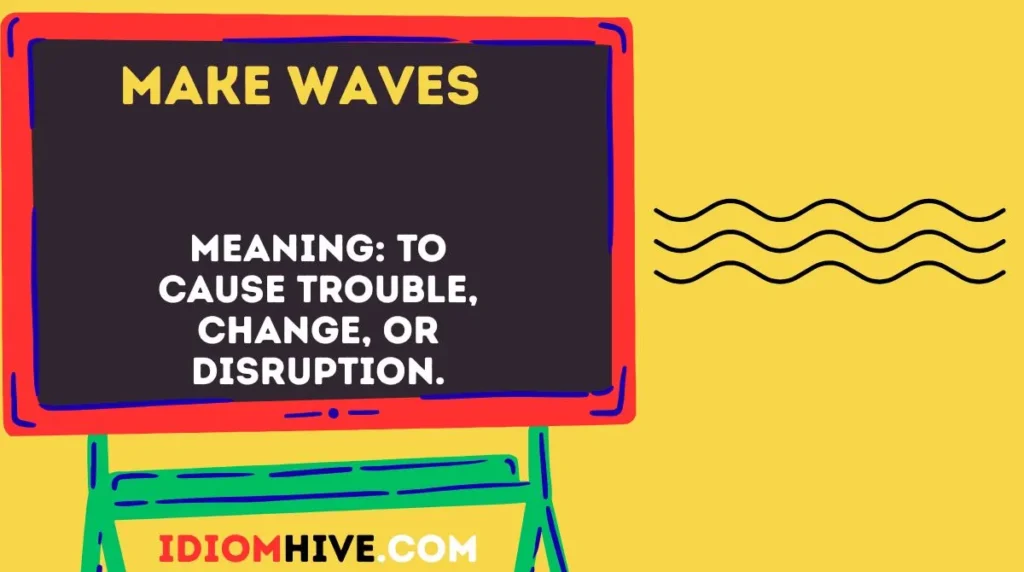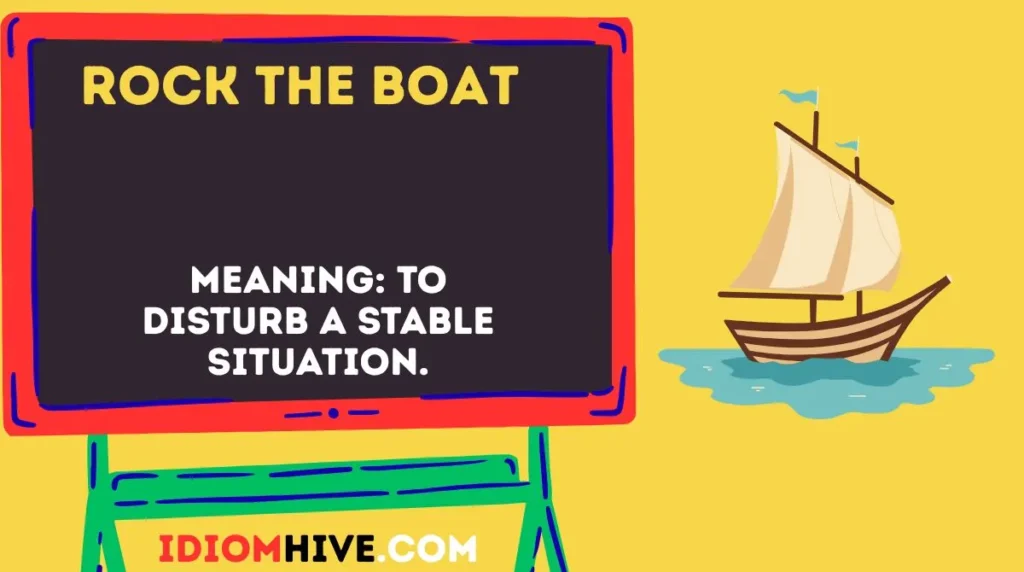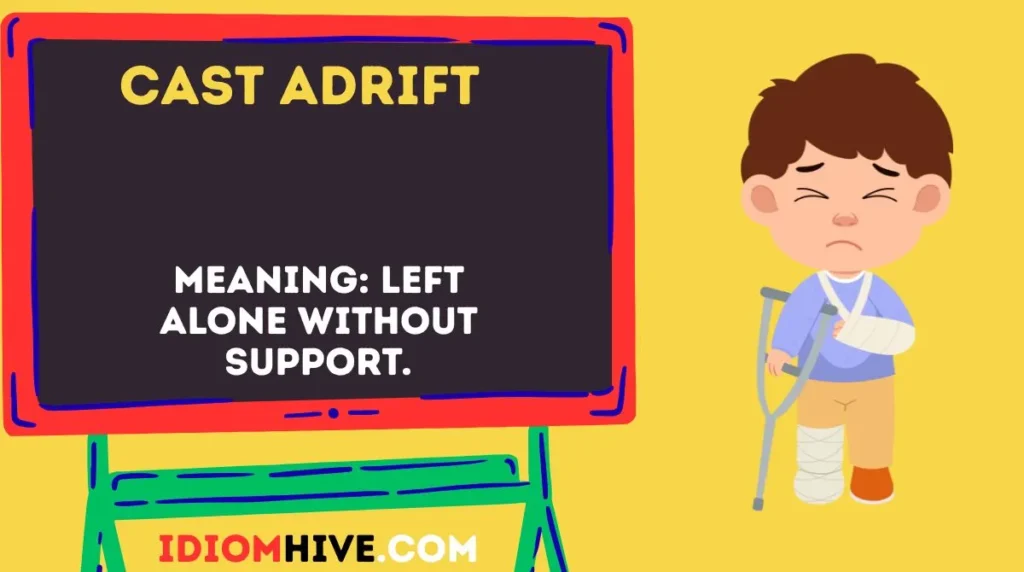The English language is full of color, creativity, and depth, and one of the best ways to experience this richness is through idioms. Idioms are expressions that don’t mean exactly what the words say but instead carry a hidden or figurative meaning.
They make conversations lively, add cultural flavor, and help you sound more natural when speaking English.
When it comes to idioms for the ocean, English speakers often draw inspiration from the sea, waves, ships, and marine life. The ocean has long been a symbol of mystery, adventure, and emotion, making it a perfect source for powerful expressions.
Learning these idioms is useful because they help you describe feelings, challenges, opportunities, and even everyday situations in a creative way.
Whether you’re writing essays, preparing for professional communication, or simply chatting with friends, ocean-related idioms can enrich your language and leave a strong impression.
Did You Know?
The English language has over 25,000 idiomatic expressions, and a surprising number of them are related to the sea and ocean. This is because sailors, fishermen, and coastal communities had a huge influence on early English culture. Expressions like “a drop in the ocean” or “smooth sailing” are centuries old and are still widely used today!
Ocean and Water-Related Idioms
A Drop in the Ocean
Meaning: A very small amount compared to what is needed.
Example: Donating five dollars may feel like a drop in the ocean when raising millions.
Alternative: A drop in the bucket.
Reflection: Commonly used in daily conversation, especially when talking about money, effort, or resources.
Still Waters Run Deep
Meaning: Quiet people often have deep thoughts or hidden talents.
Example: Sarah doesn’t talk much, but still waters run deep.
Alternative: Silent but wise.
Reflection: More often used in reflective or formal speech.
Pour Cold Water On Something
Meaning: To discourage or reduce enthusiasm.
Example: He poured cold water on my idea by pointing out all the problems.
Alternative: Burst someone’s bubble.
Reflection: Very common in workplace or informal discussions.
Like Water Off a Duck’s Back
Meaning: When criticism or insults don’t affect someone.
Example: The negative comments were like water off a duck’s back for her.
Alternative: Thick-skinned.
Reflection: Used in everyday conversations, especially about resilience.
Make Waves

Meaning: To cause trouble, change, or disruption.
Example: The new employee made waves by suggesting bold changes.
Alternative: Rock the boat.
Reflection: Used in business, politics, or daily conversations.
Test the Waters
Meaning: To try something cautiously before fully committing.
Example: She tested the waters by asking a few questions before giving her opinion.
Alternative: Dip your toe in.
Reflection: Widely used in workplaces and social contexts.
Blow Out of the Water
Meaning: To completely defeat or impress.
Example: Their performance blew the competition out of the water.
Alternative: Knock it out of the park.
Reflection: Informal but common in both sports and business.
In Deep Water
Meaning: In serious trouble or difficulty.
Example: He found himself in deep water after missing the deadline.
Alternative: In hot water.
Reflection: Used frequently in formal and informal speech.
Keep Your Head Above Water
Meaning: To manage or survive in a difficult situation.
Example: With rising bills, she is just keeping her head above water.
Alternative: Barely surviving.
Reflection: Common in financial or personal contexts.
Go With the Flow
Meaning: To relax and accept things as they happen.
Example: Instead of worrying, he decided to go with the flow.
Alternative: Take it easy.
Reflection: Casual and used often in everyday English.
Ship and Sailing Idioms
Smooth Sailing
Meaning: Easy progress without difficulties.
Example: Once the initial problems were solved, it was smooth sailing.
Alternative: Easy ride.
Reflection: Used casually or in professional contexts.
All Hands on Deck
Meaning: Everyone must help to complete a task.
Example: With the project deadline near, it’s all hands on deck.
Alternative: Everyone pitch in.
Reflection: Popular in workplace and teamwork situations.
Rock the Boat

Meaning: To disturb a stable situation.
Example: Let’s not rock the boat with unnecessary complaints.
Alternative: Stir up trouble.
Reflection: Used both formally and informally.
Sink or Swim
Meaning: To fail or succeed without help.
Example: New managers often have to sink or swim.
Alternative: Do or die.
Reflection: Common in business and education.
Jump Ship
Meaning: To leave a situation or job suddenly.
Example: Many employees jumped ship when the company started losing money.
Alternative: Abandon ship.
Reflection: Informal, often used in business and work settings.
Shipshape
Meaning: Neat, orderly, and well-organized.
Example: The kitchen was shipshape after cleaning.
Alternative: Spick and span.
Reflection: Used casually in daily conversations.
On Board
Meaning: To agree with an idea or plan.
Example: Are you on board with the new strategy?
Alternative: In agreement.
Reflection: Common in professional and informal talk.
Like Rats Abandoning a Sinking Ship
Meaning: People leaving a failing situation.
Example: Investors pulled out like rats abandoning a sinking ship.
Alternative: Jump ship.
Reflection: More metaphorical, often used in serious contexts.
Dead in the Water
Meaning: Not moving forward or unsuccessful.
Example: The proposal is dead in the water without funding.
Alternative: Going nowhere.
Reflection: Mostly used in formal and workplace discussions.
Steer Clear Of
Meaning: To avoid something or someone.
Example: He steered clear of political topics at the dinner.
Alternative: Stay away from.
Reflection: Widely used in daily language.
Wave and Tide Idioms
Catch a Wave
Meaning: To take advantage of an opportunity.
Example: The company caught the wave of digital trends.
Alternative: Ride the wave.
Reflection: Informal, used in modern culture.
Ride the Wave
Meaning: To benefit from a current trend or situation.
Example: She rode the wave of online shopping success.
Alternative: Go with the flow.
Reflection: Popular in business and casual speech.
Turn the Tide
Meaning: To change a situation dramatically.
Example: The new policy turned the tide of public opinion.
Alternative: Shift the balance.
Reflection: Used in politics, sports, and daily discussions.
Go Against the Tide
Meaning: To act differently from others.
Example: He went against the tide by choosing a unique career.
Alternative: Swim against the current.
Reflection: Commonly used when talking about individuality.
Time and Tide Wait for No Man
Meaning: Time passes quickly, and we must act.
Example: He decided to start the business because time and tide wait for no man.
Alternative: Don’t waste time.
Reflection: A proverb, often used in formal contexts.
Make a Splash
Meaning: To attract a lot of attention.
Example: The actress made a splash at the award show.
Alternative: Steal the spotlight.
Reflection: Mostly used in entertainment or social talk.
Wave of Emotion
Meaning: A sudden strong feeling.
Example: She felt a wave of sadness after hearing the news.
Alternative: Flood of emotions.
Reflection: Used in both daily and formal expressions.
At a Low Ebb
Meaning: At a weak or low point.
Example: His confidence was at a low ebb after the failure.
Alternative: Feeling down.
Reflection: More literary but still used today.
Make Tides Turn
Meaning: To bring positive change.
Example: His speech made the tides turn in his favor.
Alternative: Turn the tables.
Reflection: Often used in competitive settings.
Sea, Storm, and Adventure Idioms
Lost at Sea
Meaning: Confused or unsure.
Example: She felt lost at sea in the new city.
Alternative: At a loss.
Reflection: Used in both casual and reflective contexts.
Calm Before the Storm
Meaning: A quiet period before trouble.
Example: The office was silent, the calm before the storm of deadlines.
Alternative: Silence before chaos.
Reflection: Popular in both formal and informal English.
Weather the Storm
Meaning: To survive difficulties.
Example: The company weathered the storm during the crisis.
Alternative: Ride it out.
Reflection: Common in business and personal contexts.
Three Sheets to the Wind
Meaning: Very drunk.
Example: He came home three sheets to the wind after the party.
Alternative: Wasted.
Reflection: Informal and humorous.
Taken Aback
Meaning: Surprised or shocked.
Example: She was taken aback by his sudden proposal.
Alternative: Caught off guard.
Reflection: Common in daily speech.
Cast Adrift

Meaning: Left alone without support.
Example: He felt cast adrift after losing his job.
Alternative: Left stranded.
Reflection: More poetic but still used today.
Sea Change
Meaning: A big and significant transformation.
Example: Technology has brought a sea change in education.
Alternative: Major shift.
Reflection: Used in formal writing and business.
Between the Devil and the Deep Blue Sea
Meaning: Stuck between two difficult choices.
Example: She was between the devil and the deep blue sea with both job offers.
Alternative: Between a rock and a hard place.
Reflection: Formal and informal usage.
Oceans Apart
Meaning: Very different or far away.
Example: Their opinions were oceans apart.
Alternative: Worlds apart.
Reflection: Used both in casual and literary contexts.
Plenty of Fish in the Sea
Meaning: There are many other opportunities or people.
Example: Don’t worry about the breakup—there are plenty of fish in the sea.
Alternative: More options out there.
Reflection: Very popular in casual conversations about relationships.
How to Use These Idioms in Daily Life
- In Speaking: Sprinkle them naturally in conversations to sound fluent. For example, instead of saying “It’s easy now,” you can say, “It’s smooth sailing.”
- In Writing: Use idioms in essays, blogs, and creative writing to make your content engaging.
- In Professional Usage: Idioms like “all hands on deck” or “turn the tide” are often used in workplaces to motivate and inspire.
Common Mistakes Learners Make With Idioms
- Literal Meaning Confusion
❌ Wrong: “He was really lost at sea, maybe he forgot his boat.”
✔ Correct: “He was lost at sea with the new rules.” - Mixing Idioms Incorrectly
❌ Wrong: “Let’s not rock the tide.”
✔ Correct: “Let’s not rock the boat.” - Overusing Idioms
Using too many idioms in one sentence makes speech unnatural. Keep them balanced.
FAQs
1. What are idioms for the ocean used for?
They help describe emotions, challenges, and opportunities using sea imagery, making language richer and more expressive.
2. Are ocean idioms formal or informal?
Most are used in daily conversations, but some (like “sea change” or “turn the tide”) are suitable for formal writing and speeches.
3. Do native speakers use these idioms often?
Yes, many of these idioms are common in both spoken and written English.
4. Can idioms be used in academic writing?
In academic writing, idioms should be used sparingly. However, in creative or persuasive writing, they add great impact.
5. How can I remember ocean idioms easily?
Group them by themes (water, ships, waves) and practice them in short sentences daily.
Conclusion
The ocean has always fascinated humans, and it’s no wonder that English idioms borrow heavily from its waves, tides, and mysteries.
From describing struggles (“in deep water”) to opportunities (“ride the wave”), these expressions add vividness and personality to your language.
By practicing and using them wisely, you can make your speech more colorful, your writing more engaging, and your communication more powerful.
So dive in, explore these idioms, and let the sea of English expressions carry you toward fluency.










